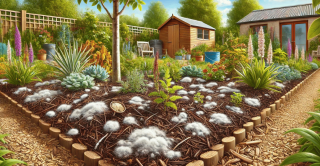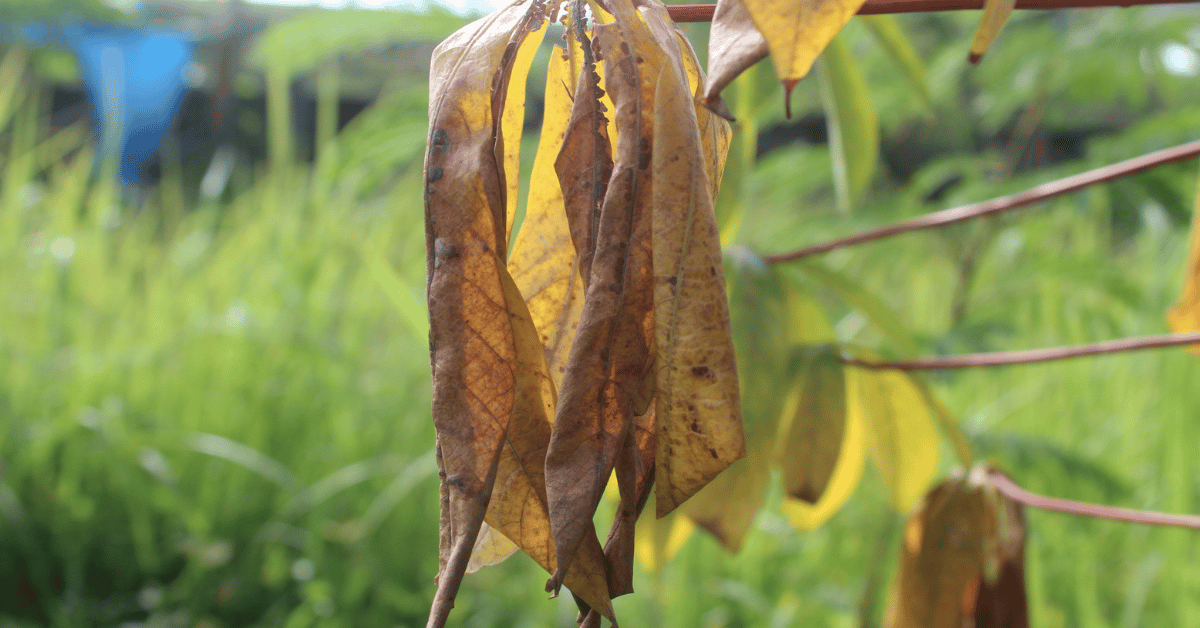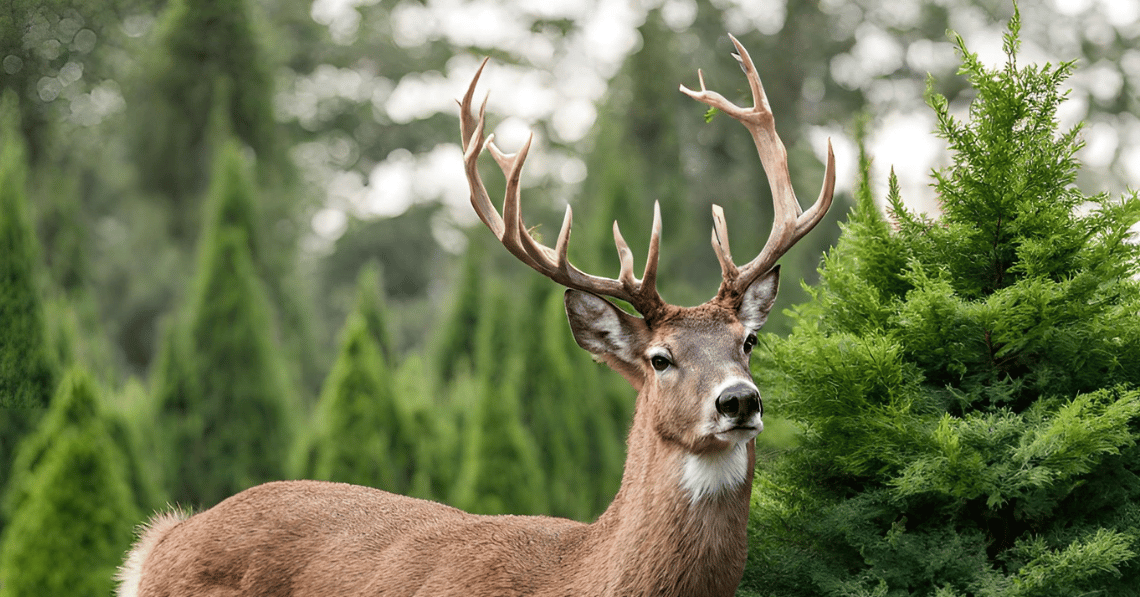If you've ever noticed white mold on your mulch, you're not alone. This phenomenon, often called slime mold, can be alarming at first glance. However, the good news is that it's generally not harmful to plants, trees, children, or pets. It can even be beneficial to your landscape. But what exactly causes this white mold to appear, and what should you do about it?
Understanding White Mold on Mulch
White mold, or slime mold, typically appears as a white, fluffy substance on the surface of mulch. This mold is a type of saprophytic fungus, which means it feeds on dead organic matter. In the case of mulch, the mold breaks down the wood and other organic materials, contributing to the decomposition process. This is a natural part of the ecosystem and helps recycle nutrients into the soil.
Is White Mold on Mulch Dangerous?
The term often searched is "Is white mold on mulch dangerous?" The answer is generally no.
White mold is not harmful to your plants or trees. It plays a beneficial role in your garden by breaking down organic materials and enriching the soil. However, there are a few considerations to keep in mind:
- Allergic Reactions: If you're allergic to mold, white mold can cause symptoms such as sneezing, skin irritation, or respiratory problems. It's essential to wear gloves and a mask if you're handling moldy mulch to avoid any allergic reactions.
- Pets: If your pets have access to the garden and you suspect they've eaten the mold, monitoring them closely is best. While most cases are harmless, it's always a good idea to consult your veterinarian if you notice any unusual symptoms.
Treating Moldy Mulch
While white mold is not usually a cause for concern, you might want to treat it if it becomes unsightly or if you have mold allergies. Here are some tips for dealing with moldy mulch:
- Dry It Out: White mold thrives in damp, humid conditions. If you notice mold on your mulch, try to remove any excess water from the area. This could involve improving drainage or allowing the mulch to dry naturally in the sun.
- Use Vinegar: Vinegar is a natural and effective way to kill mold. Mix water and white vinegar in a spray bottle to the affected areas. Vinegar will not harm your plants but will help eliminate the mold.
- Dig It Up: You should remove and dispose of the moldy mulch for more severe cases. Use a shovel to dig up the affected areas and replace them with fresh mulch. Be sure to dispose of the moldy mulch in a sealed bag to prevent the spread of spores.
- Dampen It: Before cleaning moldy mulch, lightly spray the area with water. This helps to reduce the spread of mold spores, making the cleanup process more manageable and reducing the risk of inhaling spores.
- Prune Affected Plants: If the mold has spread to nearby plants, use clean shears to remove the infected leaves, stems, or flowers. Dispose of the pruned material properly to prevent further contamination. Regular pruning can also improve air circulation and reduce the likelihood of mold growth.
Preventing Future Mold Growth
To prevent white mold from returning, consider these preventative measures:
- Proper Mulching: Apply mulch at the recommended 2-3 inches depth. Avoid piling mulch too high against the base of plants, as this can create a damp environment conducive to mold growth.
- Choose the Right Mulch: Different types of mulch decompose at different rates. Hardwood mulch tends to break down more slowly than softwood mulch, reducing the likelihood of mold growth. Consider using a mulch that suits your specific needs and climate conditions.
- Regular Maintenance: Turn and aerate the mulch to promote proper air circulation. This helps to dry out the mulch and prevent mold from forming.
- Proper Watering: Avoid overwatering your garden. Ensure that your irrigation system is set up to provide adequate water without creating overly damp conditions.
Contact Strobert Tree Services
If you're dealing with moldy mulch or any other tree and landscape issues, Strobert Tree Services is here to help. We are experts in tree care, serving Delaware, Pennsylvania, and New Jersey. Our team of professionals can handle your pruning and tree maintenance needs, ensuring your landscape remains healthy and beautiful.
White mold on mulch might be unsightly, but it's generally harmless and can benefit your garden. Following the tips above, you can effectively manage and prevent mold growth, keeping your landscape in top condition. If you need professional assistance, don't hesitate to contact Strobert Tree Services for expert care and maintenance.











